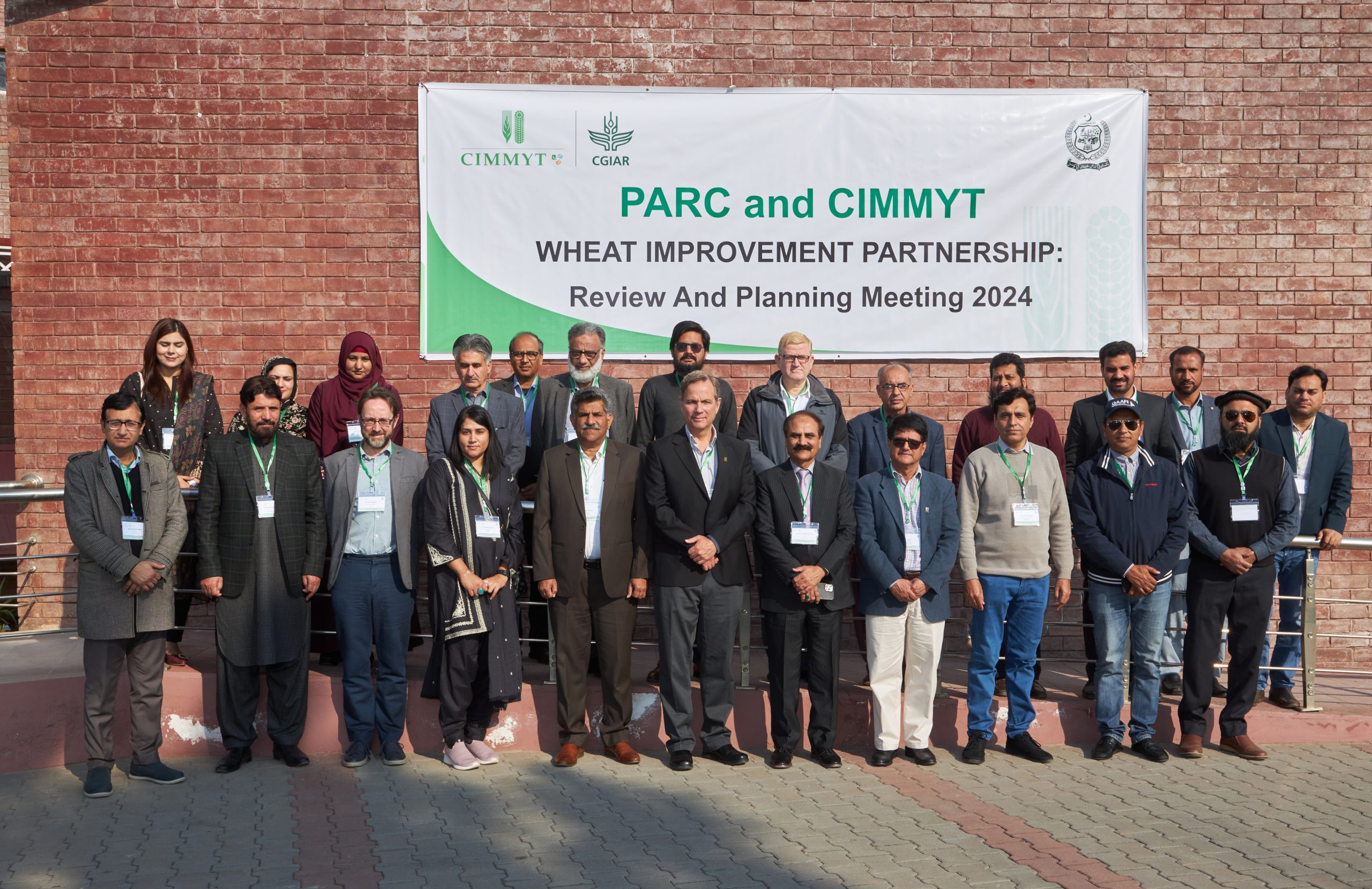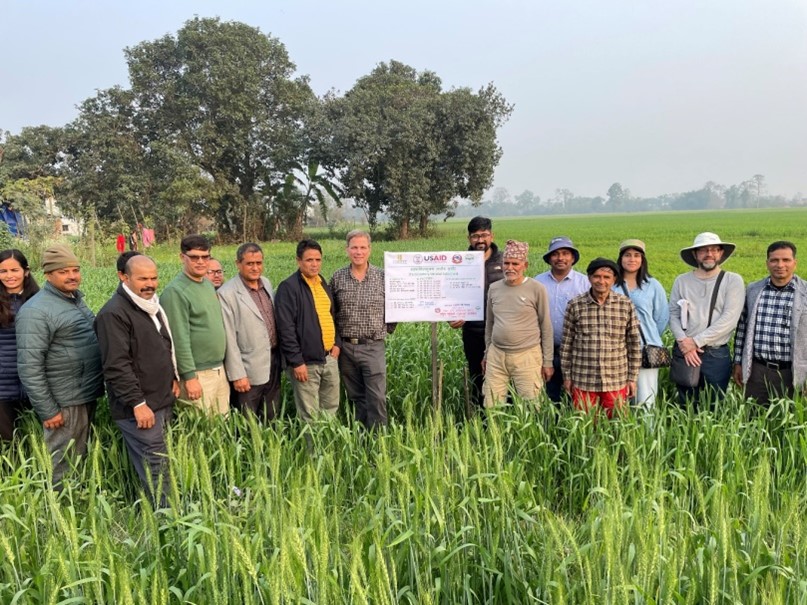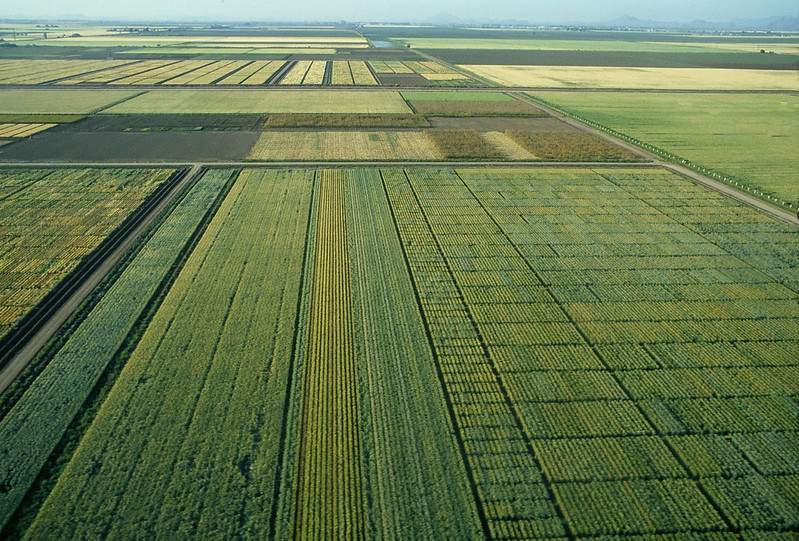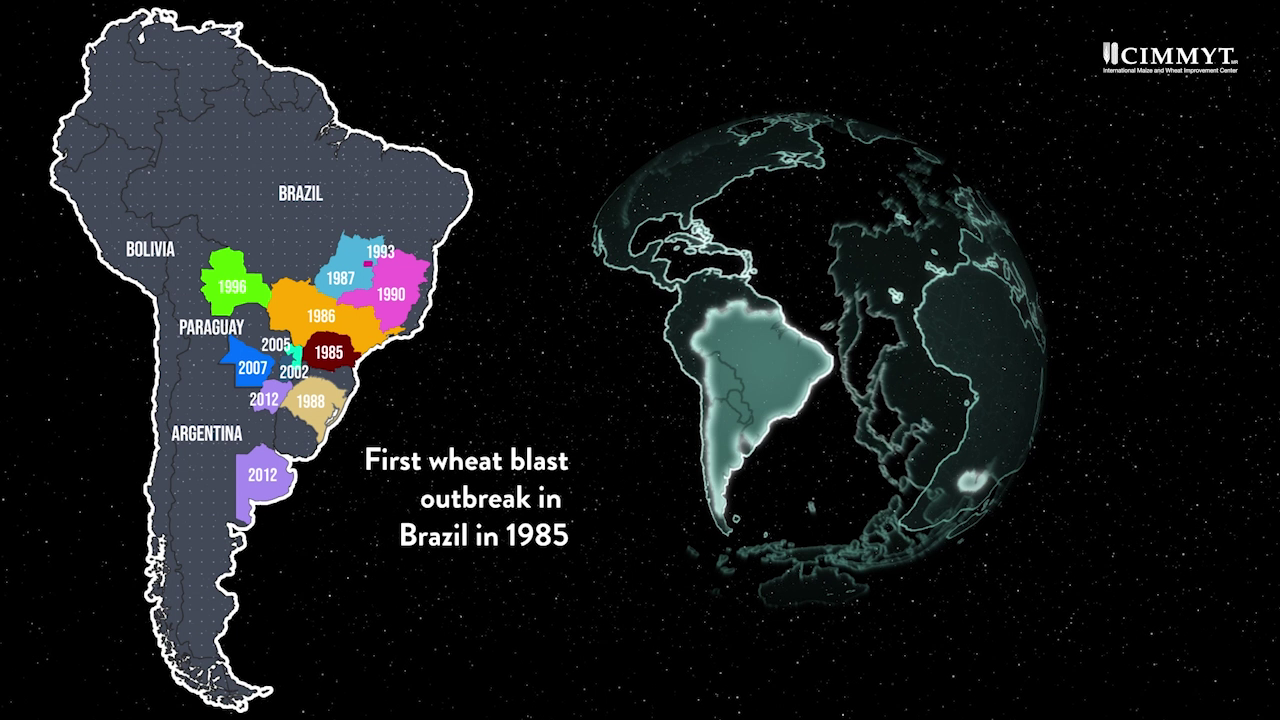CIMMYT Global Wheat Program (GWP) scientists visited National Agricultural Research Systems (NARS) partners in Pakistan, Nepal, and India during February 2024. The key purpose was to review current approaches and explore new opportunities to enhance collaborative wheat improvement activities.
NARS partners described their current priorities and recent changes in their activities, while CIMMYT shared recent modernization efforts of its wheat breeding and highlighted opportunities to enhance collaborative wheat improvement. GWP representatives included Interim Wheat Director Kevin Pixley, and scientists Naeela Qureshi, Velu Govindan, Keith Gardner, Sridhar Bhavani, T.P. Tiwari, and Arun K Joshi.

Planning the future of South Asian wheat
In each country, CIMMYT and NARS leaders held a one-day meeting to review and plan their wheat improvement partnership, with attendance from 25-30 wheat scientists in each country. The sessions aimed to review and identify bottlenecks to the wheat impact pathway in each country, describe recent changes in the breeding programs of CIMMYT and NARS partners, and prioritize and agree updates to the NARS-CIMMYT wheat improvement collaborations.
NARS partners highlighted their wheat improvement programs through field visits to research stations. Visitors attended Wheat Research Institute (ARI), Faisalabad and National Agricultural Research Center (NARC), Islamabad in Pakistan; National Wheat Research Program (NWRP), Bhairahawa and National Plant Breeding & Genetics Research Center (NPBGRC), Khumaltar in Nepal; and Indian Institute of Wheat and Barley Research (IIWBR), Punjab Agricultural University (PAU), Borlaug Institute for South Asia (BISA), and the Indian Agricultural Research Institute (IARI) in India.
The GWP team also visited: Faisalabad Agricultural University, with a special focus on collaborative zinc biofortification work in Pakistan; farmers’ fields in Nepal to see participatory evaluations of elite wheat lines (candidates for release as new varieties) and to hear from farmers about challenges and expectations from improved varieties; and the Lumbini Seed Company to learn about the crucial role of seed companies, bottlenecks, and opportunities in the pathway from research to impact in farmers’ fields.
NARS scientists and directors in all three countries were enthusiastic about the opportunities for enhanced partnership to adopt some of the modernizing technologies that AGG has brought to CIMMYT. Partners are especially keen to –
- Receive earlier generation varieties, segregating breeding lines to empower them to select in their own environments.
- Model and explore strategies to shorten their breeding cycles.
- Apply quantitative genetics tools to better select parents for their crossing blocks.
- Adopt experimental designs that improve efficiency.
- Explore opportunities for co-implementing improvement programs through shared testing schemes, communities of practice (e.g. for quantitative genetics or use of exotic germplasm to address challenges from climate change), and more.

“The visit provided CIMMYT and NARS wheat scientists with the opportunity to exchange experiences and ideas, and to explore ways of enhancing collaborations that will strengthen our joint impact on wheat farmers and consumers,” said Pixley.
Following these visits, the Bangladesh Wheat and Maize Research Institute (BWMRI) soon reached out to CIMMYT to request a similar review and planning meeting, with a vision to modernize and strengthen their wheat improvement partnership.

 Innovations
Innovations 
